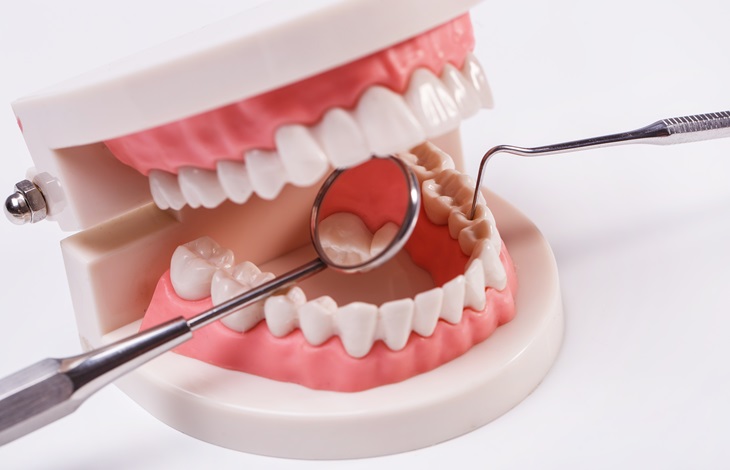Pain-Free Wisdom Teeth: Tips for a Smooth Transition into Adulthood
The arrival of wisdom teeth is a significant and often painful dental transition during the late teenage years. Marking a milestone to adulthood, third molars typically break through the gum line around the age of 17 up to 25 to complete the full set of mature teeth. However, it is not uncommon for them to appear later than this range, and some patients at the dentist in Maroubra even go through life without ever developing wisdom teeth at all.
While the process of these teeth erupting is completely natural, it can feel uncomfortable and be quite distressing for some. Thankfully, with some proactive adult oral health care and a little preparation, you can go through this transition smoothly and hopefully pain-free.
Before we discuss the measures your dentist in Maroubra advises for carefree wisdom teeth growth, let’s consider why we have wisdom teeth in the first place.
Wisdom teeth are a dental reminder of human evolution. The extra molars were once vital for our early ancestors, who needed them for extensive chewing as the overall diet consisted primarily of tough, fibrous foods. However, a strong jaw has become somewhat redundant now that we have evolved and changed our eating habits by cooking lots of our groceries and eating softer, processed foods. Wisdom teeth can cause many problems due to their location in the mouth, often leading to overcrowding, gum disease and infection, sometimes requiring gum surgery or a root canal treatment. After a thorough exam, in many cases, the dental clinic Maroubra advises their young patients to have their wisdom teeth removed early on.
Why Wisdom Teeth Can Cause Pain
When wisdom teeth start to appear, they often cause discomfort, swelling of the gums and even sharp, throbbing pain. Most of the time, this irritation is brought on by the fact that there might not be enough room left in the jaw to accommodate them properly by the time they appear. As a result, the teeth can become partially trapped beneath the gum line, often leading to dental issues such as infection and abscesses if left untreated. To avoid extensive treatment in the future and further problems with the surrounding teeth, regular dental check-ups at the dentist in Maroubra are vital during this period.
How to Grow Wisdom Teeth Pain-Free
While some minor discomfort may be unavoidable throughout this process, there are proactive measures you can take to lessen the pain and ensure an easier adjustment to your full set of adult teeth:
Stay on Top of Dental Hygiene
Placed awkwardly in the mouth, proper brushing and flossing of the new wisdom teeth, including regular dental cleanings at the dental clinic Maroubra, is crucial for maintaining optimal adult oral health care to help prevent infections and other complications that may arise during wisdom teeth growth.
Reach Out to a Pharmacy
If you experience dull discomfort at the back of the jaw and gum swelling, over-the-counter pain medications like ibuprofen can temporarily relieve the pain. Make sure to follow the dosage recommendations carefully, and contact your dentist in Maroubra if the pain continues or gets worse.
Change your Diet
A crunchy apple or chewy bread might irritate the area around the growing wisdom teeth and cause further discomfort. Cooked vegetables, soup, and dairy products like yoghurt or scrambled eggs might be better food options until the pain subsides.
Cool the Area Down
Cold packs, ice cubes, or frozen food wrapped in a towel can help numb inflammation and temporarily numb the sensitive area. These cold compresses can be applied to the cheek several times daily to counteract soreness.
Consider Wisdom Teeth Removal
Sometimes, the best solution in adult oral health care is to extract a tooth or even more than one to avoid future complications. At our dental clinic Maroubra, we discuss this common procedure with patients who do not have enough room in their jaws to accommodate the third molars or when we can foresee future dental problems.
Maintain Adult Oral Health
Once the wisdom teeth have appeared, it is crucial to maintain good adult oral health care practices to keep your full set of teeth in the best shape. Along with regular brushing and flossing, try to incorporate more vitamins into your diet, such as leafy greens, nuts, and dairy products for calcium intake.
Seek Profession Guidance
Don’t hesitate to seek guidance from your dentist in Maroubra during this transitional period. During your regular dental check-up, the oral professional can provide personalised advice and support you in growing your adult teeth while addressing potential issues before they become more serious. To evaluate and determine any treatment or procedure to protect your oral health, they may recommend taking X-rays to help observe the specific alignment and position of the exact location of your wisdom teeth. The X-ray will reveal how close your wisdom teeth are to the neighbouring teeth and show their roots and stages of development, enabling an accurate diagnosis for the dental clinic Maroubra to develop a treatment plan or start discussing if the wisdom teeth need to be extracted.
If you experience any issues while your wisdom teeth are coming in, we encourage you to get in touch with Dental Avenue Maroubra at 02 9344 8822 for helpful tips and tailored guidance. Our expert team will help you on your pain-free journey to adult teeth and a confident, healthy smile.
Read Also:
A Journey Through Children’s Dental Development
What Are The Common Causes And Treatments For Bad Breath (Halitosis)?

